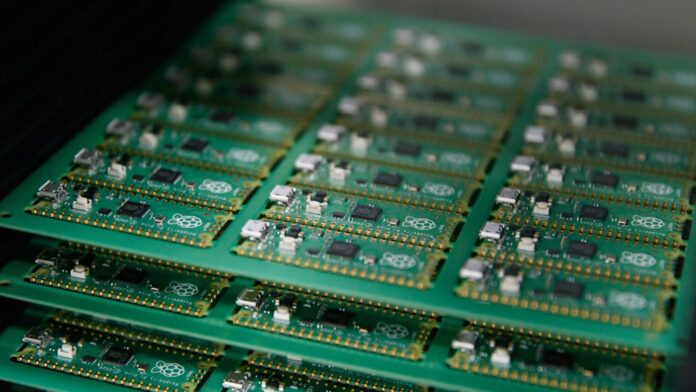Raspberry Pi units have been hard to buy due to manufacturing shortages for the miniature computer components, but it looks like the supplies will be widely available again by next year—with a price increase.
“We can say with confidence that, after a lean first quarter, we expect supply to recover to pre-pandemic levels in the second quarter of 2023, and to be unlimited in the second half of the year,” Eben Upton, CEO of Raspberry Pi Trading, wrote in a post(Opens in a new window) on Monday.
In the wake of the COVID-19 pandemic, the Raspberry Pi Foundation experienced “a couple of years of semiconductor supply chain hell,” Upton noted. In response, the foundation was forced to prioritize Raspberry Pi shipments to commercial customers over retail consumers.
According to Upton, the foundation is still facing a backlog on commercial orders. But in the coming weeks, it expects to gradually increase Raspberry Pi production for “single-unit sales,” which will go toward retail consumers.
(Credit: adafruit.com)
“The chip allocations we’ve received for next year mean that by the end of the third quarter, the channel will have recovered to its equilibrium stocking level, with hundreds of thousands of units available at any given time,” Upton added. “At that point, we will have spent a little over two years in a low-stock position: a measure of the severity and persistence of the shortages.”
In the meantime, the foundation has freed up about 100,000 units to retail consumers for holiday season sales. The units will be split across the Raspberry Pi Zero W, 3A+, and then the 2GB and 4GB variant models for the Raspberry Pi 4. Expect supplies to arrive through authorized retailers(Opens in a new window). Consumers can also see which units are in stock via online inventory tracker rpilocator(Opens in a new window).
Recommended by Our Editors
For next year, the foundation expects Raspberry Pi Zero and Zero W units to be available first, followed by the Raspberry Pi 3A+ and then the Raspberry Pi 4. But in some bad news, Upton said the foundation has been forced to raise the price for the Raspberry Pi Zero from $5 to $10, and Zero W from $10 to $15, to offset rising manufacturing cost increases.
“There is an upside here, though: once Zero products return to volume availability in 2023, we no longer expect to see the single-unit limitations that have been a feature of Zero since its launch in 2015 — you’ll be able to buy as many as you want at a time,” he added.
Get Our Best Stories!
Sign up for What’s New Now to get our top stories delivered to your inbox every morning.
This newsletter may contain advertising, deals, or affiliate links. Subscribing to a newsletter indicates your consent to our Terms of Use and Privacy Policy. You may unsubscribe from the newsletters at any time.
Hits: 0















